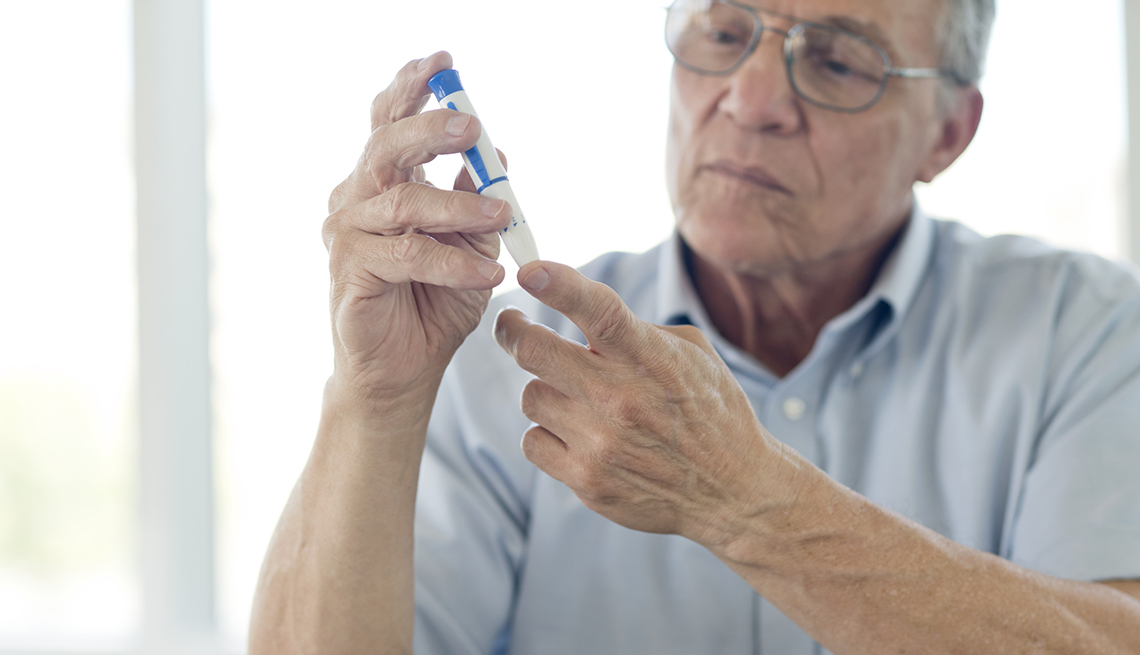
Chronic conditions and increased covid-19 risks
- Select a language for the TTS:
- UK English Female
- UK English Male
- US English Female
- US English Male
- Australian Female
- Australian Male
- Language selected: (auto detect) - EN
Play all audios:

Public health experts have warned for several weeks that older adults are more likely to experience severe symptoms of COVID-19, the respiratory disease caused by the coronavirus. And a lot
of that has to do with “a gradual deterioration of their immune system” that happens as we age, says Nancy Messonnier, director of the National Center for Immunization and Respiratory
Diseases at the Centers for Disease Control and Prevention (CDC). But people of all ages with common, chronic health conditions — such as diabetes and heart disease — also are in danger of
becoming seriously ill if they contract the virus that's spreading across the globe. The reason for this elevated risk? The body's organs all “work in tandem together” to keep
things going and to fight off infections, explains Stephen Kopecky, a cardiologist and professor in the department of cardiovascular medicine at the Mayo Clinic. And “as you start to stress
one end of the system, the other part of the system has more trouble,” he adds. CONTROLLING DIABETES CRITICAL DURING OUTBREAK Over time, high blood sugar, a defining characteristic of
diabetes, can damage the body's blood vessels, says George Rutherford, a physician and epidemiologist at the University of California, San Francisco. And damaged blood vessels can
compromise an individual's lung function, which could make a person with a respiratory infection like COVID-19 “more susceptible to complications,” he adds. Viral infections also can
increase inflammation in people with diabetes and raise the risk for a life-threatening condition where the blood becomes too acidic, the American Diabetes Association (ADA) says. Both can
be life-threatening. The key, experts say, is to keep your diabetes under control. If it is well managed, a diabetic's risk for serious illness from a coronavirus infection is similar
to that of the general population, according to the ADA. CHRONIC CONDITIONS AND COVID-19 New data from the CDC released March 31 shows Americans with chronic medical conditions face an
increased risk of severe illness from COVID-19, consistent with earlier reports from China and Italy. Researchers looked at more than 7,000 U.S. cases where data was available on underlying
health conditions and other potential risk factors and found: * Among people hospitalized for COVID-19, about 71 percent had at least one underlying condition. * Among people admitted into
intensive care for COVID-19, about 78 percent had at least one underlying condition. * About 27 percent of people with at least one underlying health condition did not require
hospitalization for COVID-19. * The most commonly reported conditions among people sick with COVID-19 were diabetes, lung disease and heart disease. Persons with underlying health conditions
who have symptoms of COVID-19, including fever, cough or shortness of breath, should immediately contact their health care provider, the CDC says in its report. That is why it's
especially important that all people with diabetes — both type 1 and type 2 — keep adequate supplies of insulin and other diabetes medications on hand to limit extra trips to the pharmacy
during the spread of the virus. The ADA also recommends keeping simple carbs (regular soda, honey, jam, hard candies, etc.) stocked “to help keep your blood sugar up if you are at risk for
lows and too ill to eat." "With diabetes, the high blood sugar is damaging to a lot of different systems in the body, including your immune system,” says Pinchas Cohen, dean of the
University of Southern California Leonard Davis School of Gerontology and a member of the advisory board for the Milken Institute Center for the Future of Aging. “So by getting your
diabetes under control, you're actually leading to improved immune function. It's really uncontrolled diabetes that puts you at risk for secondary infections, including
coronavirus.”
